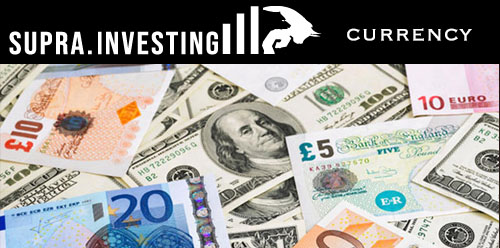Dollar dips at the start of heavy week of data

The dollar was mostly lower on Monday ahead of U.S. durable goods orders and an inflation reading this week that could provide more information on how soon the Federal Reserve may begin cutting interest rates.
The dollar index, a measure of the greenback against a basket of currencies, was last down 0.2% at 103.78 - though the U.S. currency strengthened 0.1% to 150.71 against the Japanese yen.
In cryptocurrencies, ether rose 8% at $3,177, while bitcoin gained 6.89% at $54,506.
U.S. durable goods data is due Tuesday, while January's U.S. personal consumption expenditures price index, which is the Fed's preferred measure of inflation, will be released Thursday.
The market has recently reduced expectations for the size and how soon it expects the Fed to cut rates, as the U.S. economy remains strong.
Markets have all but ruled out a cut at the Fed's March meeting and have recently pushed back expectations for a cut to June from May, CME's FedWatch Tool showed, following strong U.S. consumer and producer price data.
Inflation figures in the euro zone, Japan and Australia also land this week, alongside a rate decision from the Reserve Bank of New Zealand (RBNZ) and China PMI surveys.
"The market is a bit cautious and the key driver for dollar/yen is U.S. yields," Marc Chandler, chief market strategist at Bannockburn Global Forex in New York, said.
"In Q4 of last year, the market got very aggressive about the Fed easing and in the first half of Q1, the market adjusted, interest rates rose and the dollar rose. That adjustment is over, and I think we'll begin seeing weak economic data beginning with tomorrow's durable goods orders."
Japan's nationwide consumer prices also are due on Tuesday and are forecast to show core inflation slowed to an annual rate of 1.8% in January, the lowest since March 2022.
That would complicate the Bank of Japan's (BOJ) plans to end negative interest rates in coming months, keeping the yen under pressure in the near term.
The euro was last up 0.3% at $1.0852, after gains against the dollar in eight of the last nine trading sessions.
European Central Bank officials have reiterated their focus on inflation in the euro zone, particularly the service sector and wage growth.
ECB President Christine Lagarde told European lawmakers in Strasbourg that wage growth remains robust across the euro zone but firms may be absorbing some of this increase via lower profit margins rather than raising prices.
A major driver behind the euro's strength has been the narrowing gap between where traders believe U.S. and euro zone interest rates will finish the year.
Only two weeks ago, investors were assuming the Fed would cut rates by around 80 basis points this year, compared with around 100 bps from the ECB. By Monday, that gap had all but disappeared.
